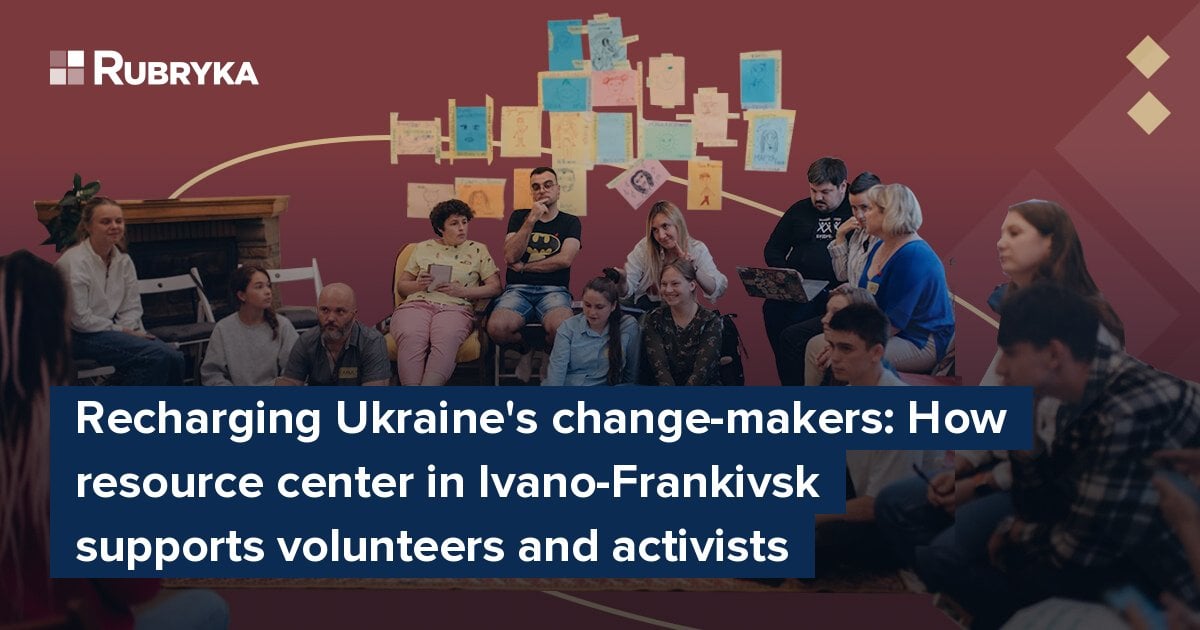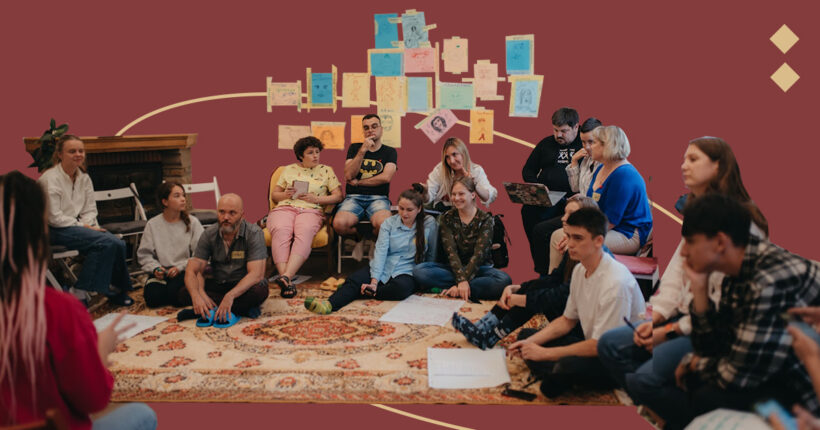
What's the problem?
NGOs and volunteer groups in Ukraine face many obstacles that limit their work. They often struggle with a lack of equipment, workspace, and facilities for meetings and learning, which forces activists to use their valuable resources to meet basic needs and drains their time and energy that could be spent on vital projects.
During wartime, when volunteers play a crucial role in supporting affected communities and aiding the military, this problem becomes even more critical.
What's the solution?
To address the challenge, the Ukrainian nonprofit organization STAN has opened a free resource center in Ivano-Frankivsk. Located at Chornovola Street, 122, this versatile space provides a welcoming environment where activists and NGO representatives can work, rest, and collaborate.
"While working with both young activists and seasoned community leaders, we noticed that people sometimes need a change of scenery," says Maria Kelii, project manager at STAN. "Some just need a place to catch up on sleep because they often work in front-line towns and villages, helping others. Some teams are so caught up in daily operations that they have little time to build their organizations. Our space lets them do all of this. We can provide accommodation and meals and even offer internships for organizations that need it."
How does it work?
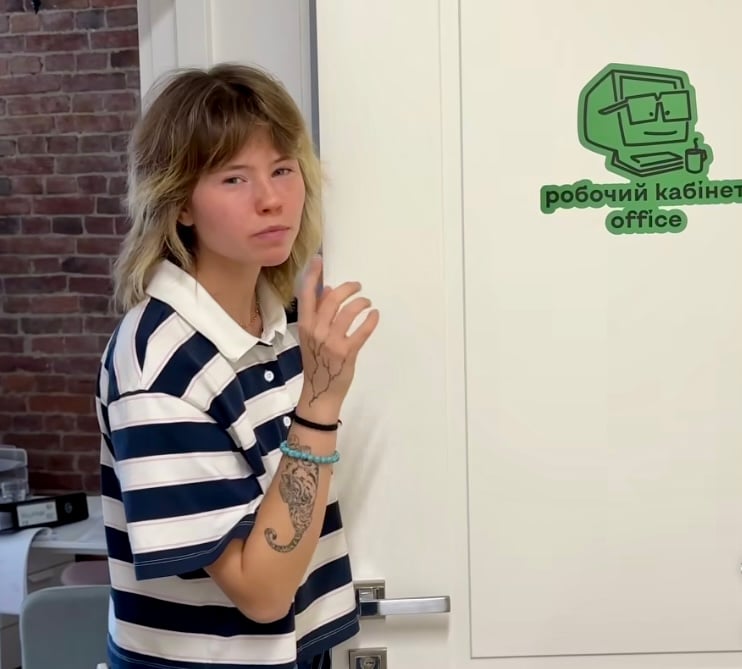
Antonina, the event manager, gives a tour of the STAN space. Screengrab from NGO STAN's video
STAN is a non-governmental organization working in informal education and helping young people take their first steps in the public sector. It began as a protest literary group in the eastern city of Luhansk in the late 1990s but quickly grew into a nationwide community of young professionals and mentors in education, culture, human rights, and media.
After the Russia-Ukraine war began in 2014 and Luhansk was occupied, the organization relocated to Ivano-Frankivsk. With the start of the full-scale invasion in 2022, STAN, like many Ukrainian NGOs, expanded its activities to support displaced people and nonprofits from front-line regions.
"We bring together diverse people to build a democratic society. We're eager to share our experience, respond to the challenges of war, and support others in taking control of their lives," says Maria Kelii. "Our organization encourages change-making initiatives, amplifies the voices of the unheard, and creates spaces for growth and learning. Working closely with activists and volunteers from all over Ukraine, we felt the urgent need for a place where they too could receive help and support."
This realization led the STAN team to create Resource Centers in Ivano-Frankivsk and the town of Volodymyr. Their long-time partner, the Moldovan branch of IM Swedish Development Partner, inspired and supported them in making these centers a reality. Maria Kelii says both centers provide young people with essential resources and support, especially during the war.
What does the Resource Center offer?
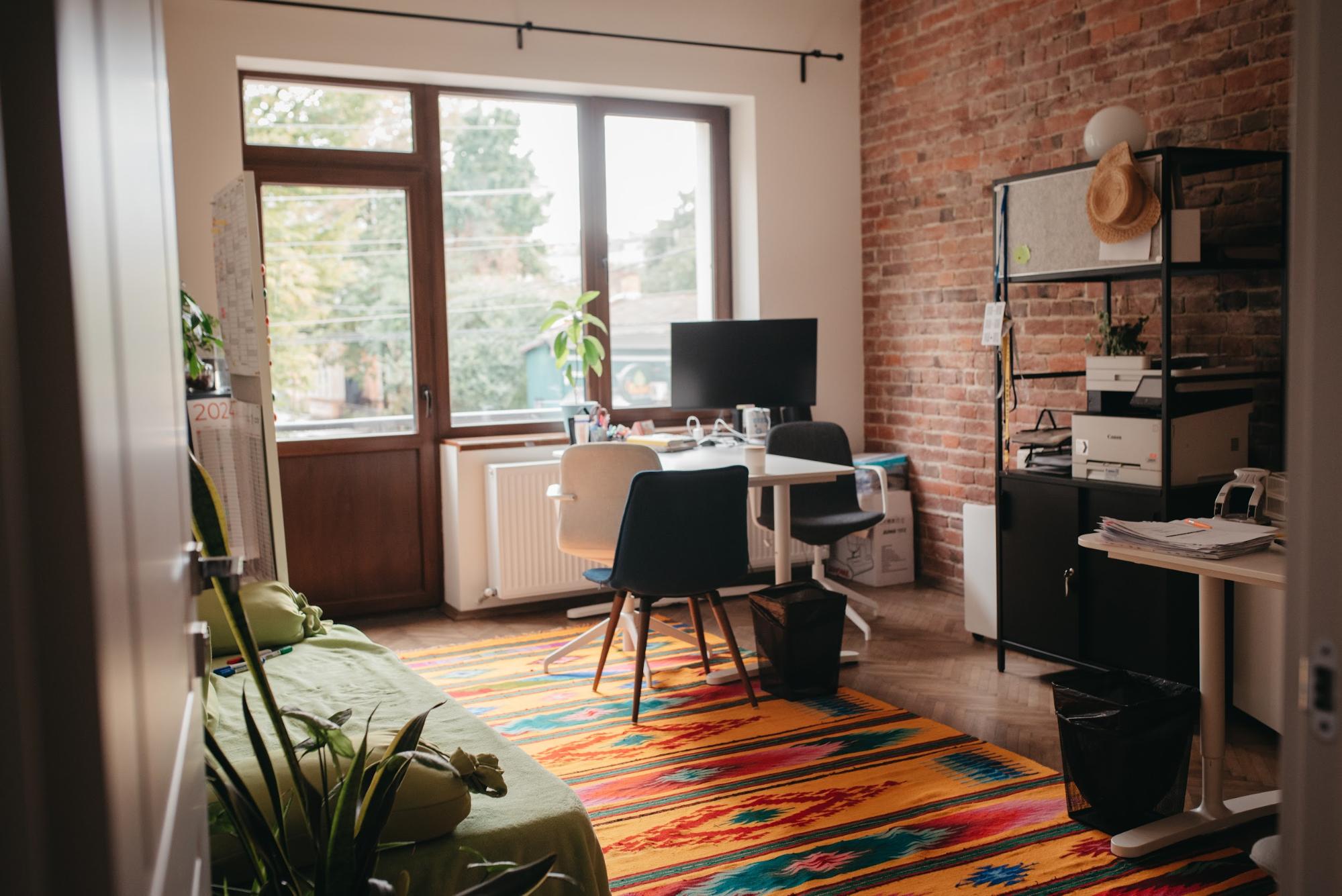
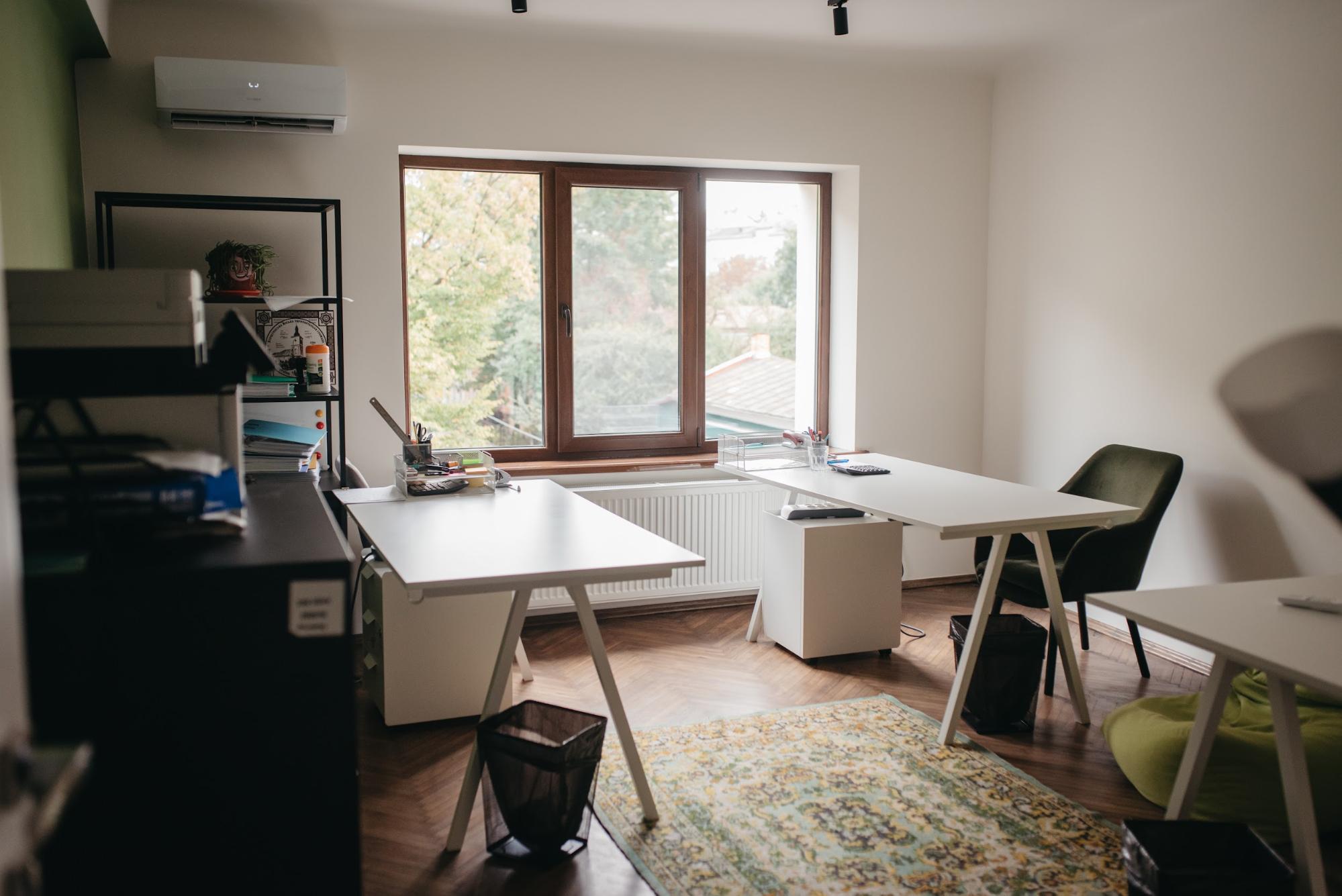
Working rooms of the STAN resource center
The Ivano-Frankivsk Resource Center covers 400 square meters, with two floors and a basement. It is designed to function independently even during power outages, and the basement area also doubles as a shelter during air raids.
The center includes five fully equipped office rooms with desks, chairs, printers, flipcharts, and more. It also has two event halls: a basement hall that can seat up to 30 people and a cozy fireplace room on the second floor for around 20 participants. Both spaces are equipped with projectors, microphones, cameras, and other amenities, all free for volunteers and NGO representatives.
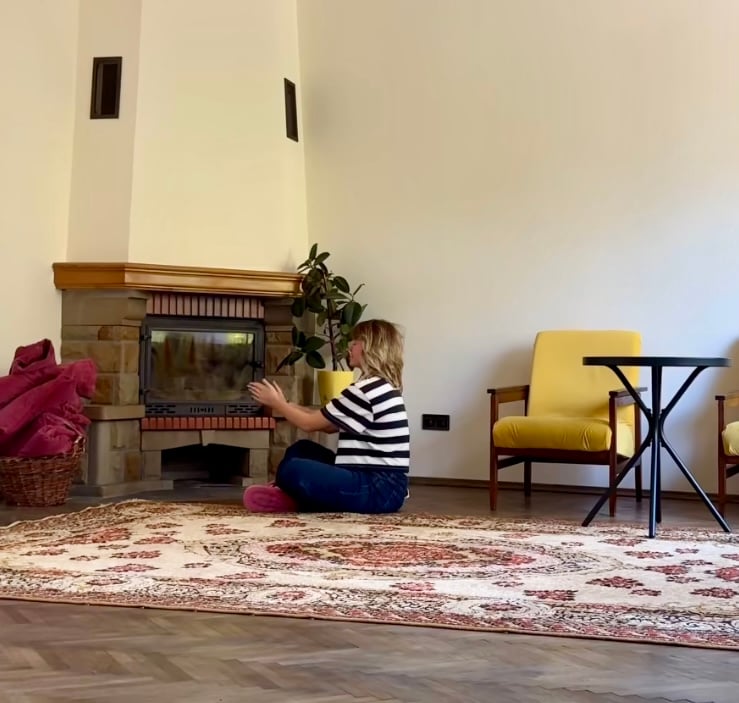
In the fireplace hall. Screenshot from the video of NGO STAN
The center features seven bathrooms to ensure comfort for large groups and includes one fully accessible for people with disabilities. There are plans to install an elevator to make the space even more inclusive.
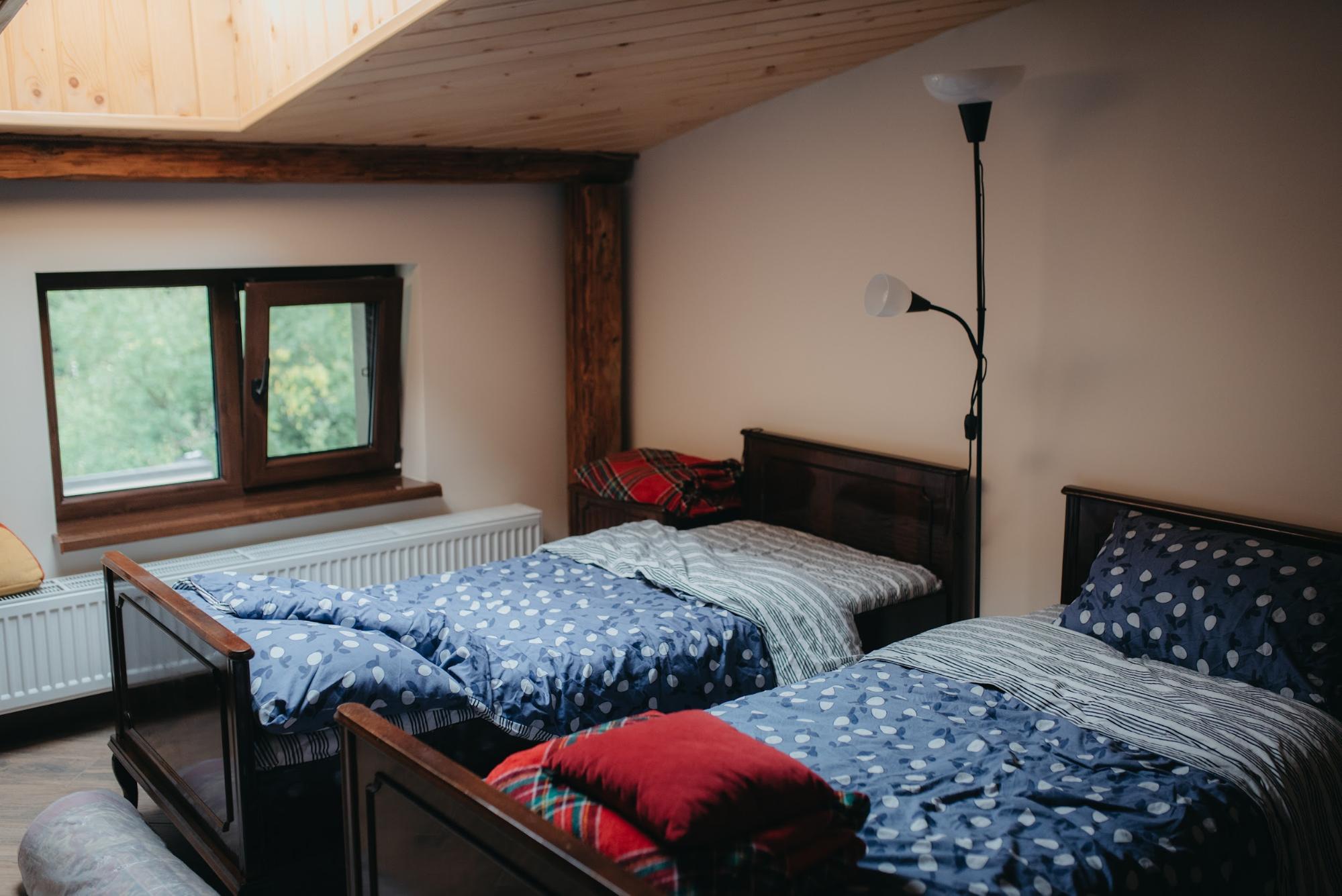
Bedrooms. Photo: NGO STAN
The center is for more than just events. It also has two kitchens fully equipped with refrigerators, microwaves, dishes, coffee makers, kettles, an oven, a stove, a dining table, and chairs. There's also a guest room for young activists, event participants, and volunteers who need a place to stay for a few days to rest and recharge (booking is required through STAN's Instagram page).
"This is a place where people can feel safe, learn, connect with others, share ideas, engage in intercultural dialogue, and simply be themselves," project manager Maria Kelii says.
Volunteers, activists, and community workers need only fill out the form to use the space.
The form includes registration for various types of activities:
- Events (this could be workshops, training sessions, conferences, forums, film screenings, book clubs, presentations, networking, using the game library, etc. — with audience participation).
- Art platform (this might involve creative residencies, art project development within the resource center, using the space for art projects, organizing exhibitions, performances, film screenings, creative labs, concerts, masterclasses, literary events, lectures, curatorial projects, and other creative endeavors).
- Work (this could include project work, brainstorming sessions, meetings, strategy planning, team-building activities, or other team gatherings — without involving an external audience).
- Overnight stay in the apartments.
The center is free for activists who are just starting out. Other organizations and initiatives are charged a fixed rate.
Does it really work?
Replenish resources and get the help you need
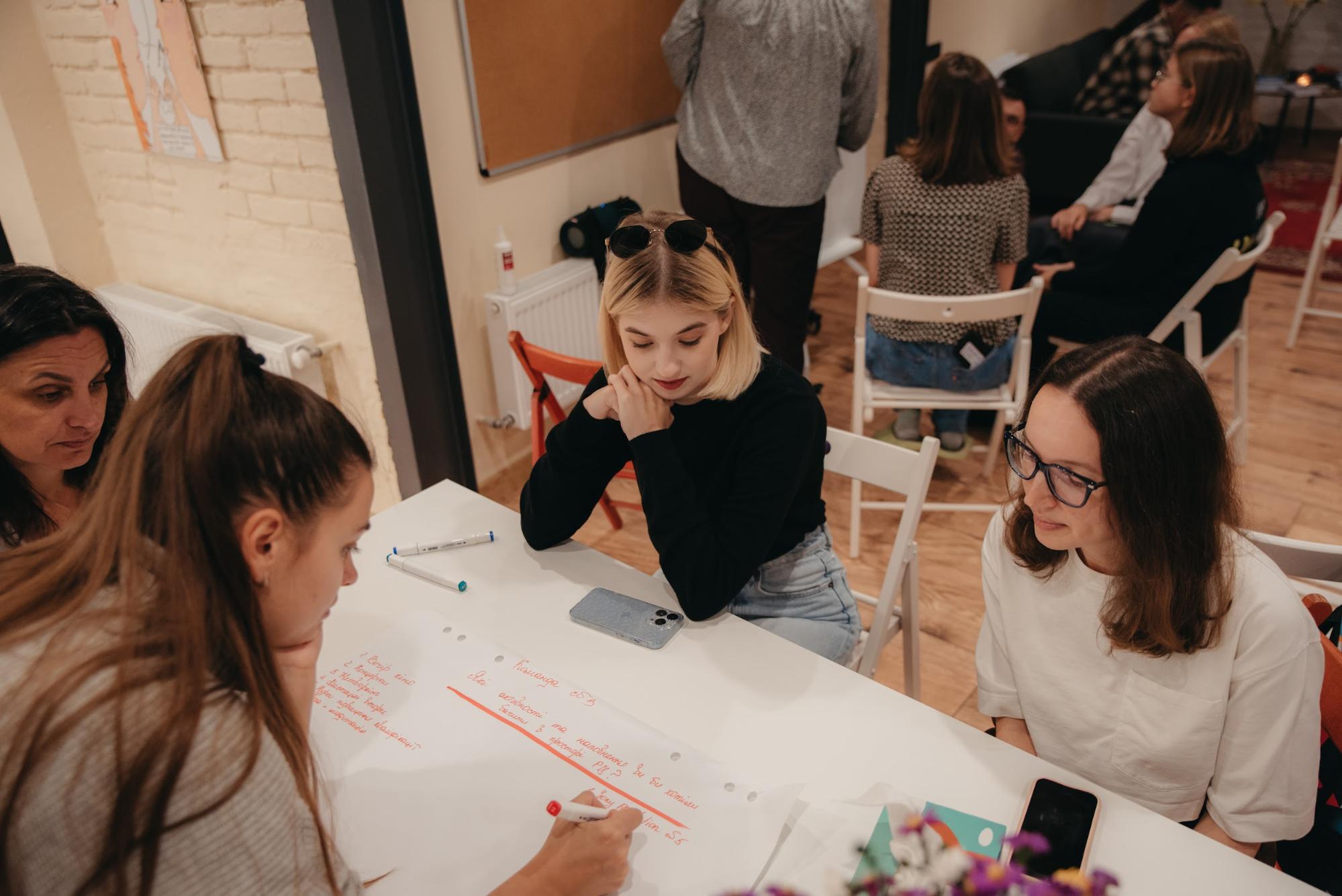
The work at the Resource Center began right at its opening event. Photo: NGO STAN
Since the start, the center has held 14 events and had 90 visitors. Also, 26 people used the overnight stay service.
One example is a partner organization from Kherson, whose volunteers, who usually travel to the sites of missile strikes, come to Ivano-Frankivsk to rest, regroup, and plan their next steps. "We see that this need isn't limited to volunteers from Kherson but extends to activists from various regions," says Maria Kelii.
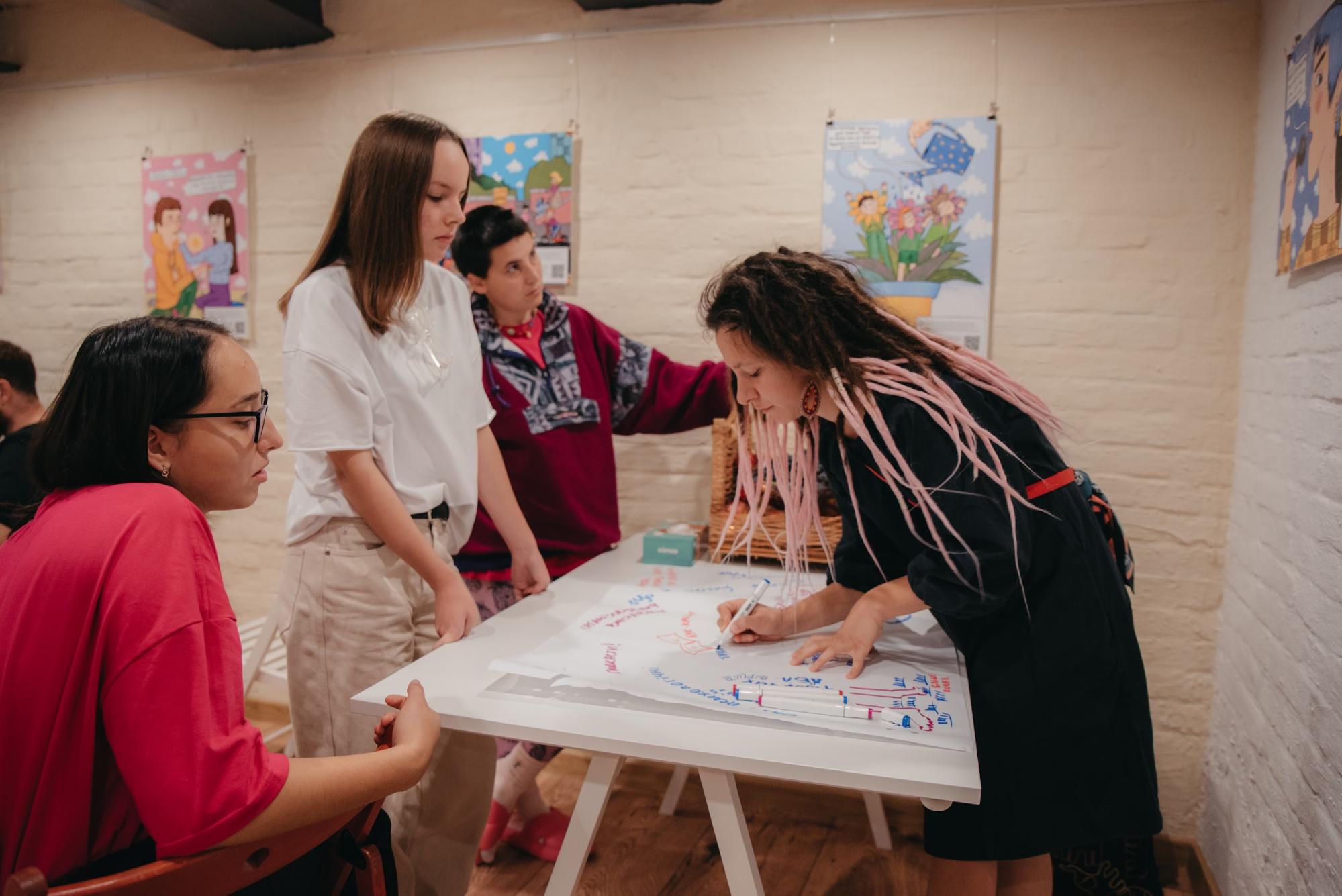
During the opening of the space, guests worked on ideas for the Resource Center. Photo: NGO STAN
When we hear "resource center," we often associate it with recovery. Rubryka asked Maria Kelii whether the center offers any psychological support, as burnout is common among activists and volunteers today.
"We opened the space in late September. Right now, our focus is on supporting activists, NGO workers, and colleagues from the civil sector. The center offers various resources: equipment for use, a space, and networking opportunities where people can make new connections. We don't have a psychologist on our team, but during the opening event, we had a session with our guests to brainstorm potential new features for the Resource Center. The request for psychological support came up, and we are considering how best to meet this need — perhaps through mental health events and workshops," says the activist.
Should every community have a resource center?
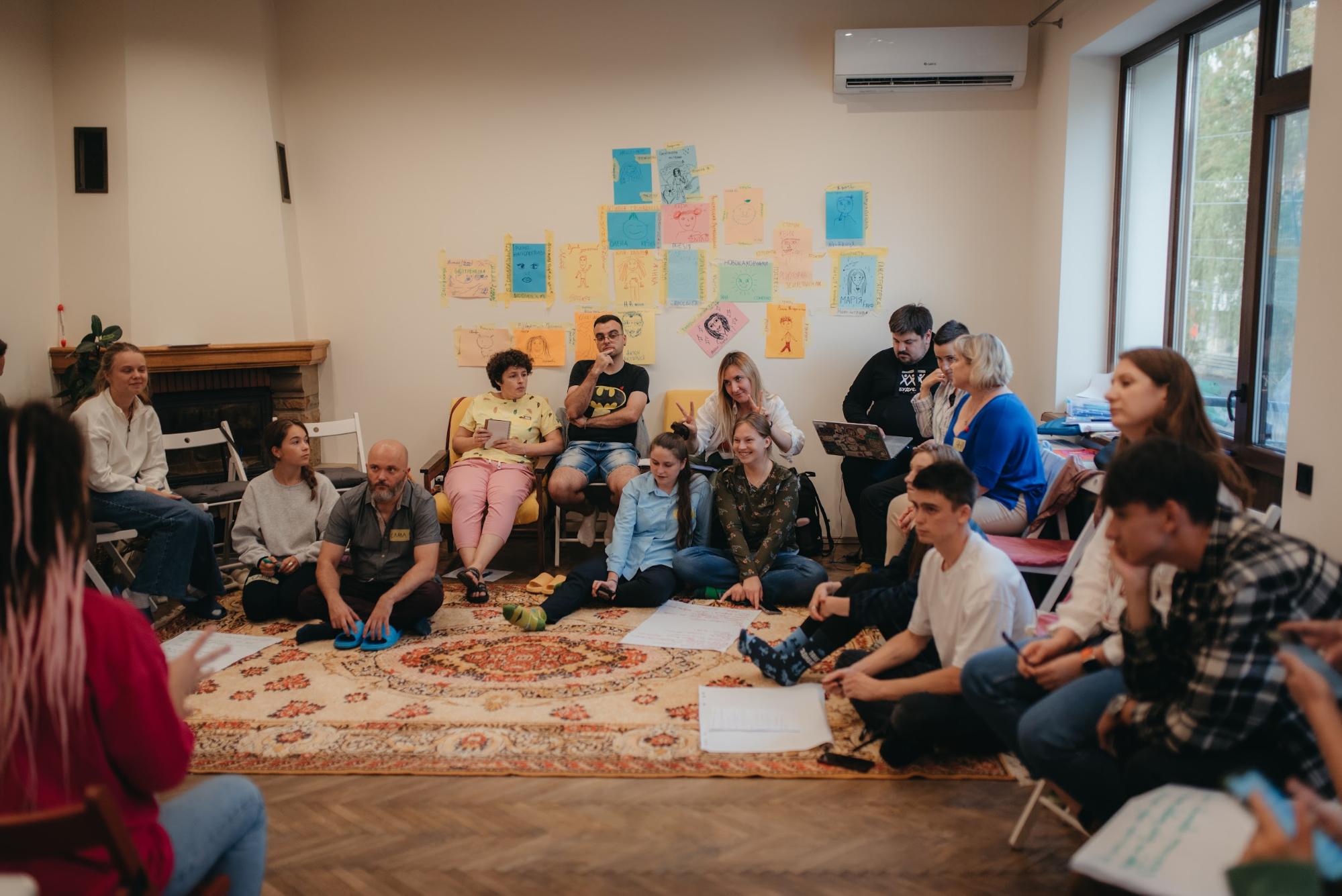
Training for trainers of the "Young Ambassadors of Diversity" program in the fireplace hall of the center. Photo: NGO STAN
The project team believes similar resource centers could be beneficial elsewhere, but only if there is an explicit demand for them.
"There's no point in building beautiful spaces that lack substance. It's essential for these places to have a 'soul' — a spirit of growth and connection," says Maria Kelii.
Maria notes that similar spaces exist in large cities and even smaller towns in Ukraine. Donors or NGOs often create them, but the spaces can be left empty when the funding ends.
"That's truly disheartening. The initiative should come from the community, not from donors or local authorities. If the people understand the real need for such a space and are ready to take charge of its activities and development, only then do these projects have a future," says the STAN project manager.
Maria adds that it took a long time for NGO STAN to realize this need. The organization conducted thorough research to determine what the space should be, who it should serve, and what it should look like. They brought together a strong team that worked "side by side" and secured financial and conceptual support from donors and partners.
What's next?
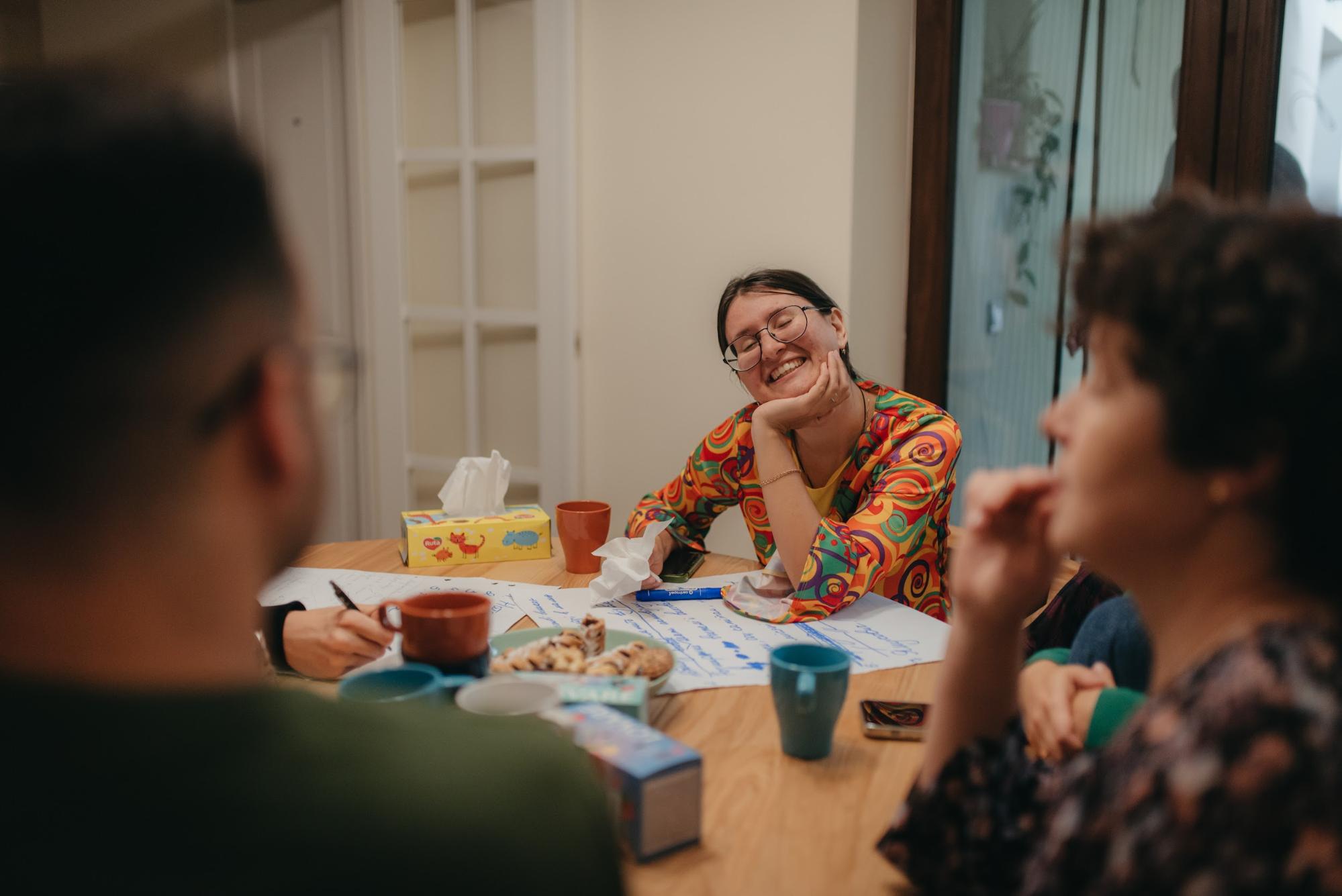
Participants in the dining room space. Photo: NGO STAN
STAN continues to build on the idea of the resource center. They are now starting work on a similar space in a natural, recreational setting. The organization says, "We believe the future center should embrace permaculture principles and foster relaxation and recovery. "
According to Maria Kelii, the nonprofit's most important goal is that the space serves the people who use it. "When we see how the resource center helps young activists bring their ideas and projects to life, it's the greatest motivation. It's the proof that we did everything right," says the activist.


